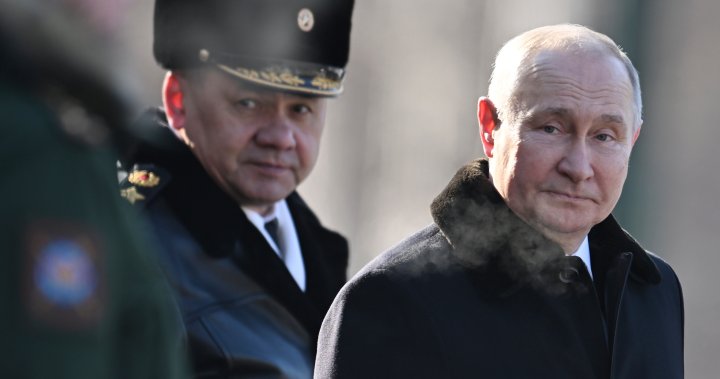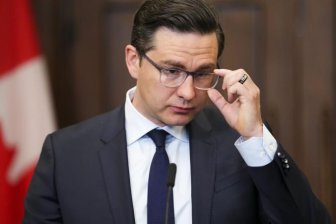Russians in Moscow and other cities brought flowers to Ukrainian poets and held one-person pickets with antiwar slogans Friday to mark the first anniversary of Moscow’s invasion of Ukraine.
Russian media and civil rights groups reported at least a dozen detentions, part of the Kremlin’s sweeping crackdown on dissent that has spiked to unprecedented levels since the start of the war.
At least eight people were detained in Yekaterinburg, Russia’s fourth-largest city, according to OVD-Info, a legal aid group that tracks political arrests. They all had brought flowers to the city’s monument to victims of political repression, the group said.
Read more:
U.N. isolates Russia, calls for ‘lasting peace’ amid anniversary of war on Ukraine
Read next:
Part of the Sun breaks free and forms a strange vortex, baffling scientists
Online news outlet Sota filmed at least seven people getting detained in St. Petersburg after they brought flowers to a monument for the renowned Ukrainian poet Taras Shevchenko. Footage posted by the outlet showed a police officer explaining to a couple that they had violated coronavirus restrictions.
Sota also reported a person detained in Moscow, where people flocked to the monument of Lesya Ukrainka, another renowned Ukrainian poet, to lay flowers. A contingent of police officers monitored the group but mostly didn’t interrupt.
Five people were detained in the Siberian city of Barnaul, according to the Sibir.Realii news outlet, including a man who picketed a central square with a placard reading “Stop being silent.” In another Siberian city, Komsomolsk-on-Amur, a woman was detained for protesting with a banner that read, “We’re mourning. Forgive us, we screwed up our country,” the outlet reported.
Russians all across the country actively protested against the war in Ukraine during the first week of the invasion. Large rallies quickly fizzled after thousands were detained, but solo pickets — and detentions — have persisted throughout the year.

Russian authorities have enforced a law enacted soon after the invasion that effectively criminalizes any public expression against what the Kremlin refers to as a “special military operation” in Ukraine.
The Russian parliament rubber-stamped a bill that outlawed discrediting the Russian military or spreading false information a week after Moscow’s troops rolled into Ukraine.
OVD-Info said in a statement Friday that “for 305 out of 365 days of the war, security forces detained people for their anti-war position in various cities of Russia and the annexed Crimea.”
As of mid-December, the group had counted 378 people facing criminal prosecution for their antiwar positions in 69 Russian regions and the Crimean Peninsula that Russia seized from Ukraine in 2014. The group also counted more than 5,500 administrative cases on the charge of discrediting the Russian army.
© 2023 The Canadian Press



